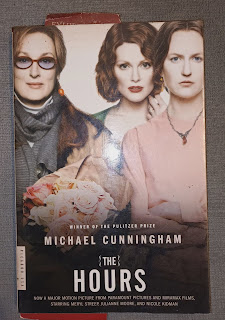Merci
Suarez Changes Gears
by Meg Medina was a New York Times Bestseller – and I learned of this book from
that list. The blurb was by R.J. Palacio who was the author of that YA Book
turned into a movie – Wonder. About a girl in her pre-teen discoveries, this
too, has a sub-story about a grandfather who has dementia. I found this a
better read than Judy Blume’s “Dear God, It’s Me Margaret”. Merci Suarez
is braver, more adventurous, and less self-conscious.
I didn’t
enjoy The Giver that much. I have confirmed that I prefer realistic
settings to dystopian narratives. However, I can understand how this book resonated
with so many young people. I believe that young people prefer structured and
probably predictable narratives.
I have to
read Human Acts by Han Kang again. This one, has too much reality, the
bitter reality. The human body is so thrown out there literally and
metaphorically, and the question of the soul separated from the body becomes
too depressing to contemplate. Of my December reads, this one really could not
even make me cry, but I cringed and felt some similar pain somehow.
The e-books
that I finished reading are both enjoyable reads. Freewater by Amina
Luoman Dawson is another story about black slaves. Young heroes in this book discover
a route to freedom and take it, but in the process, they leave someone behind. The
tale is about courage and how this was both an inevitable and a necessary
choice even for the young who knew that freedom isn’t something that can be had
without a sacrifice and worse, death. The language is unsentimental, I get to
see the scenes as if I am watching a film, yet I am not told how to feel. However,
whatever feelings I have truly encompassed my deepened understanding of the
desperate situation the young characters are in.
Maizy Chen’s
Last Chance by Lisa
Yee is a narrative of diaspora. The young girl Maizy learns about her roots
through a story told by her grandfather’s friend. Incidentally, the friendship
is somehow scarred that the girl tries to connect the dots and discovers how
her race negotiated the challenges of displacements via migration.
Among these
books, I rank Freewater no 1, followed by Human Acts, then Maizy
Chen’s Last Chance. I am reading books for Young People to listen to how they
respond to real-life situations. I just heard Neil Gaiman say in “Masterclass”
that honesty is what makes him go on as a writer – that to be a writer, one must
be honest.
In my mid-twenties
when I wrote and submitted some poems, I had some friends read the poems first
to hear what they thought about them. One of them said that I reveal too much
about myself in my writing. Maybe it is both the crafting and the telling. The
crafting was juvenile, therefore listless and without direction. The telling almost
always established a beginning and an end and I was afraid to get lost in the
self-conscious progression. Therefore they were coming out from a bad liar. The
fiction wasn’t fictional enough, the poems didn’t have cadence and the voice
was generic.
Listening
to Neil Gaiman, I thought, well, all writers start that way. However, how
writers graduate from journaling personal revelations to crafting a reality to
give it a larger-than-life status, is what writing is all about.




No comments:
Post a Comment